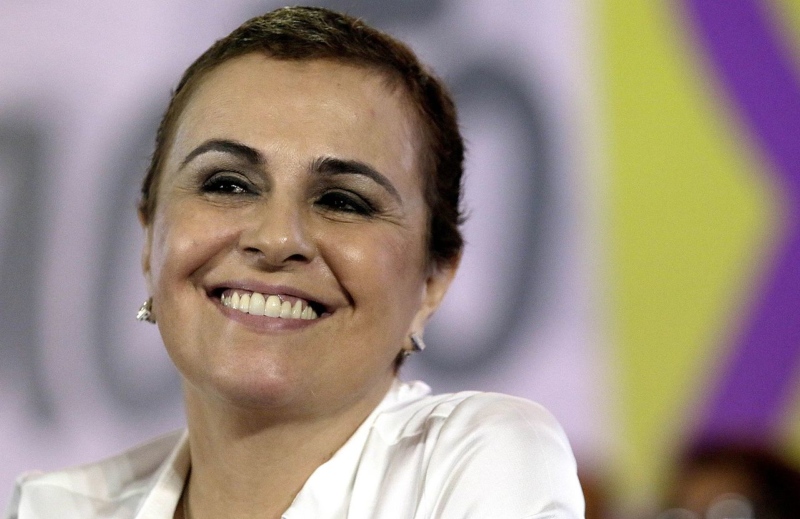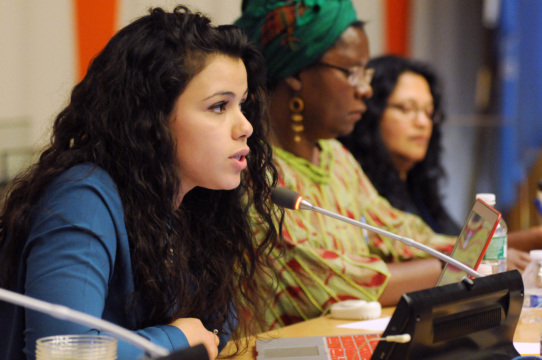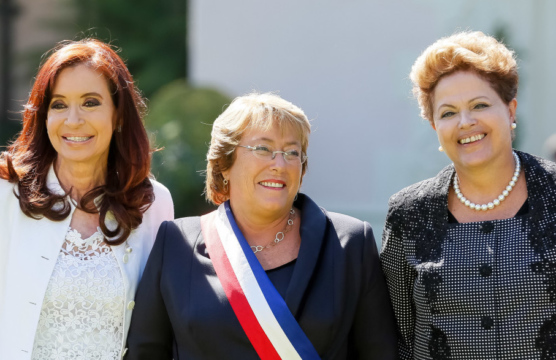What Roles are Women Playing in Mexico’s Drug War?
What roles are women playing in Mexico’s brutal drug trafficking war?
On March 8, the Inter-American Dialogue held an exchange with El Salvador’s first lady and secretary of social inclusion Vanda Pignato—who discussed Ciudad Mujer, the country’s imaginative approach to providing needed services to women.
Stemming from her experiences while traveling throughout the country during her husband President Mauricio Funes’ campaign, Pignato created Ciudad Mujer to address the social and economic exclusion endemic in Salvadoran society.
Ciudad Mujer offers women one-stop access to healthcare, education, job training, childcare, physical and sexual abuse treatment, and other services. It aims to empower women by teaching them about their rights and providing a safe space where they can receive support and assistance.
Pignato stressed that without a doubt, “women are the most important people in the family and the community” because of their role in holding together the nation’s social fabric. However, they are also the most marginalized members of society, “often uneducated, degraded by men, and even subject to physical abuse.” Many times women are drawn into cycles of violence because they are economically dependent on their aggressors. Pignato strongly believes that economic autonomy is the first step to breaking these devastating patterns.
In response to the concern that the program survive beyond Funes’ presidency, Pignato emphasized that, in fact, one of Ciudad Mujer’s greatest assets is its sustainability because it relies on established resources and institutions and primarily serves to coordinate the efforts of different agencies. When asked whether or not she foresees future presidents maintaining this program, Pignato responded that “the women who use the services of Ciudad Mujer will be the ones who fight to make sure its doors stay open.” In less than one year Ciudad Mujer has served over 17,000 women.
Beyond the numerous forms of social and economic marginalization women in El Salvador face, Pignato spoke very candidly about the exclusion they confront in the political arena. She cited her own difficulties in establishing legitimacy in a country where “men dominate the political world” and set the public policy agenda, leaving women’s issues underrepresented and largely unheard. However, a targeted effort under the current administration to recruit women to join the police force is an important step toward reversing this trend.
As secretary of social inclusion, Pignato’s goal is to utilize a human rights focus to ensure laws and institutions protect the most marginalized sectors of society, including women, children, indigenous peoples, and sexual minorities. It is these international human rights norms that may be the most powerful instruments for tackling long-standing discrimination in El Salvador.
What roles are women playing in Mexico’s brutal drug trafficking war?
How are women faring in Latin America? Where has progress been made and how has that been achieved?
Would this be a more compassionate, more peaceful planet if more of it were ruled by women?
 Wikimedia Commons
Wikimedia Commons

